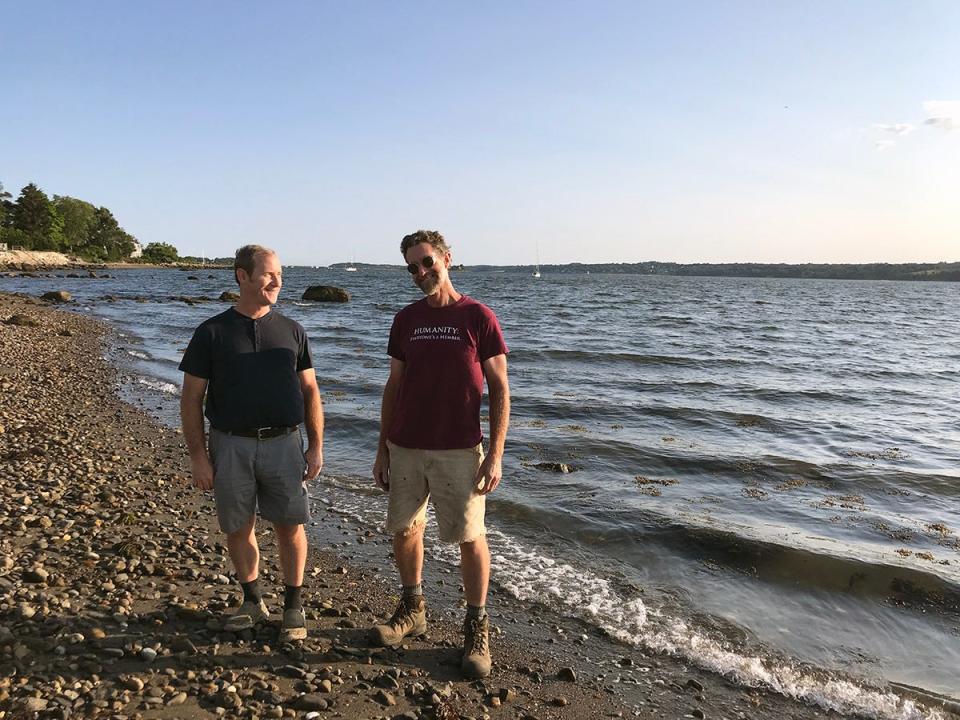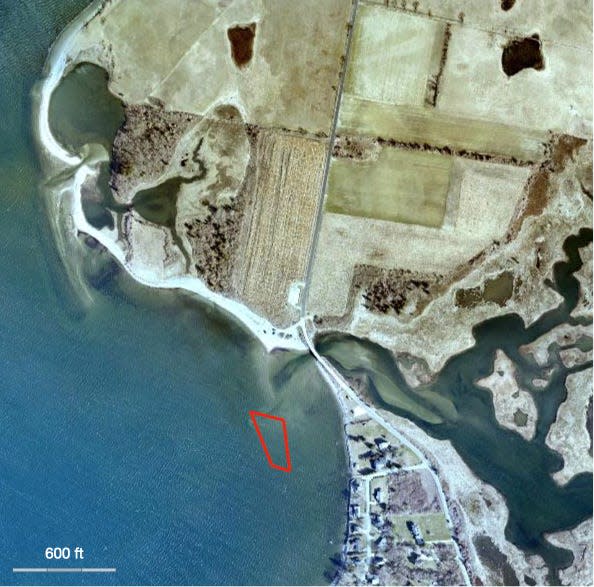They've waited four years for approval of their oyster farm. The CRMC will keep them waiting.
TIVERTON – Roughly four years have passed since John and Patrick Bowen first applied for a 1-acre oyster farm in sheltered Sapowet Cove, setting off a fierce battle in a tranquil corner of the Sakonnet River.
And they'll have to keep waiting for a decision.
Rather than approve or deny the brothers' application, the Coastal Resources Management Council voted 7-to-1 on Tuesday night to refer it to a hearing officer. Other controversial proposals have not been sent to a hearing officer because the position did not exist until earlier this year.
The only no vote came from council member Don Gomez, who expressed concerns that the CRMC was effectively changing "the rules of the game" four years into the drawn-out process.
But the problem with that argument, CRMC legal counsel Anthony DeSisto explained, is that the rules of the game were already in place.
Since 1990, state law has required the governor to appoint two hearing officers who can adjudicate contested cases. It just took until 2023 to actually fill one of those positions, in part because funding wasn't included in the budget until last year.

Why the Bowens' aquaculture application has been controversial
The Bowens, who live in Little Compton, are hoping to do something that's fairly uncommon in Rhode Island: grow oysters in an area that's shallow enough that they can wade out to tend the cages at low tide.
Doing so would reduce the farm's carbon footprint, since the brothers wouldn't need a motorboat to get there.
But the location they chose is near the Sapowet Marsh Management Area, where in-the-know fishermen wade out and cast for striped bass. While initial opposition came from residents of the surrounding neighborhood, who hired lawyers and waged an extensive campaign against the one-acre farm, groups such as the Rhode Island Saltwater Anglers Association have since joined in.
According to the New England Chapter of Backcountry Hunters & Anglers, the Bowens' proposed farm would be closer to shore than other aquaculture leases that have been approved near state-managed public access points.
In his final July report on the Bowens' application, CRMC aquaculture coordinator Benjamin Goestch observed that many of the "potential or perceived conflicts" appeared to emerge "from the applicants' concept of a nearshore operation in this location being serviced by wading from the shoreline."
The Bowens, who go back many generations in Little Compton, have suggested that most of the backlash is coming from wealthy part-time residents who have circulated misinformation about the plans. They see aquaculture as a way to sustain a year-round community in an area that's increasingly dominated by second homes.
“When we were kids, quahogging was still pretty productive. Lots of people were making a living bullraking for clams,” Patrick Bowen told The Providence Journal in 2021. “But if you think of a kid growing up in Tiverton today, and wanting to stay in Tiverton, what kind of jobs exist for them?”

CRMC staff report says that fishermen will 'adapt,' but recommends placing conditions on lease
Tuesday's meeting packet contained over 1,300 pages of documents – including hundreds of pages of letters opposing the proposed oyster farm.
The CRMC's staff review determined that many of the objections were unwarranted: For instance, the farm wouldn't impede public access to the shoreline or prevent activities like swimming, kayaking or boating.
But the farm likely would have some impact on fishermen targeting species like striped bass and bluefish during falling tides, the report said. While those fishermen wouldn't be banned from the lease area, wading through it at night "might not be prudent," and their lines could get snagged on the oyster cages.
Most fishing occurs north of the spot where the Bowens want to put their oyster farm, Goestch's July report indicates.
"It is staff opinion that if there are fish to catch in this area, anglers will continue to target them and they will likely adapt to the presence of the farm in the pursuit of their sport," the report states.
Goestch did recommend that the council include certain conditions if it approves the project, such as limiting working hours during winter months when the nearby management area is open for waterfowl hunting, and stipulating that the lease cannot be expanded in the future.
Unclear when decision might come
It's ultimately up to the CRMC's politically-appointed council to approve or reject the Bowens' proposal − and impose any stipulations. But as DeSisto pointed out on Tuesday, the agency's regulations require any contested applications to go before a hearing officer first.
That hasn't been happening, to the dismay of advocates. Last year, a special legislative committee tasked with studying potential reforms to the CRMC found that a hearing officer had never been appointed in the 30-plus years since the position was created.
State law does allow the CRMC to create a subcommittee that can act as a hearing officer and make recommendations to the full council. A controversial application from Perry Raso, the owner of Matunuck Oyster Bar, sparked what became known as the Perry Raso Subcommittee.
Earlier this year, amid pressure from groups like Save The Bay, lawyer Mark Krieger was appointed as the CRMC's hearing officer. On Tuesday, all of the council's members except for Gomez agreed to refer the Bowens' application to him.
DeSisto explained that the hearing officer will have the ability to question the parties involved, review documents and cross-examine witnesses before making a report to the council.
"It’s not a court proceeding, but there is some formality involved in it," he said.
It's unclear how long that will take. But DeSisto noted that referring applications to subcommittees has been time-consuming because it's difficult to get everyone together, and expressed hope that having a hearing officer "will actually streamline the process and make it go along a little quicker than it has, historically."
This article originally appeared on The Providence Journal: Controversial Tiverton oyster farm will need to keep waiting for approval

